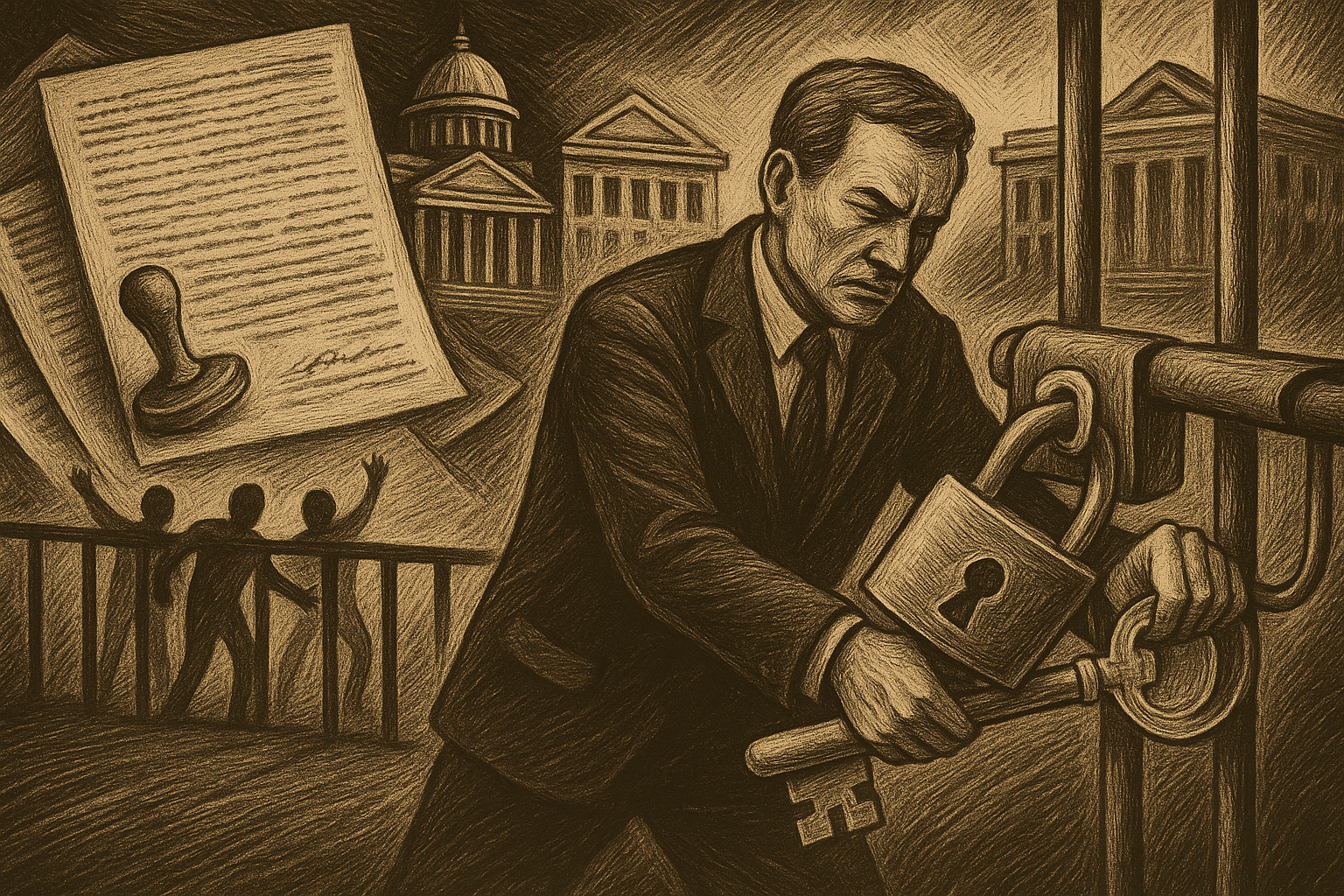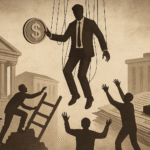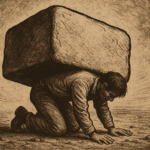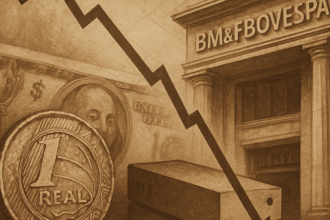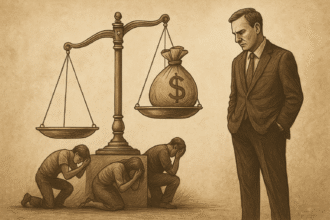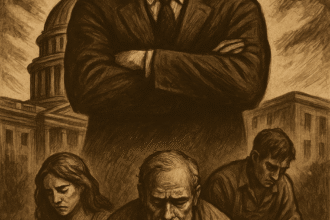When we talk about combating poverty, many people automatically turn their attention to the State: they expect public policies, redistribution programs, tax incentives and stimulus packages. The rhetoric is always generous — combating poverty, promoting equality, protecting the most vulnerable. However, what is forgotten is that the State itself is often the biggest obstacle to wealth generation.
Not by omission, but by action. By the way it legislates, regulates, taxes, demands, monitors and criminalizes almost every attempt at economic autonomy by the common citizen. The enemy of prosperity is not outside the law: he wears a robe, signs decrees and occupies ministerial positions. The State presents itself as a protector, but acts as systematic barrier to the growth of people who most need freedom to undertake.
Legislation as a siege, not as protection
Law should be an instrument to guarantee individual freedom and legal certainty. However, in Brazil — and in much of the world — economic law has become a regulatory maze. Constantly changing laws, overlapping standards, bureaucratic requirements without economic justification, and disproportionate penalties create a scenario in which only large groups can survive.
The small entrepreneur, in turn, needs to deal with permits, fees, certificates, licenses, CNPJs, prevention plans, tax guides and labor requirements that are incompatible with the reality of a business in its initial stage. The result is that thousands of people who could be producing wealth are left on the sidelines — or in the informal sector.
Regulation is the new protectionism
The classic narrative of protectionism spoke of import tariffs, market quotas and import substitution. Today, the new way to protect privileged sectors is through regulation. It is sold as “necessary” for safety, health, the environment and the consumer. But in practice, It operates as a barrier to entry—not to protect the public, but to eliminate competition.
This can be observed in several areas:
- Small artisanal cosmetics or food industries that are unable to comply with ANVISA standards;
- Microentrepreneurs prevented from providing services due to absurd certification requirements;
- Digital applications and platforms hampered by legislation that favors traditional models.
The article Tax to Ban: How Taxes Discourage Freedom Without Taking Responsibility addresses how this same effect occurs in the tax sphere. But the mechanism is the same: use the legal power of the State to prevent those “below” from getting close to those “above”.
Informality as the only escape valve
Faced with a scenario of legalized oppression, it is no surprise that so many Brazilians operate informally. Far from being a “criminal” choice, informality is often the only viable alternative for those who want to work and produce without being destroyed by state demands.
As paradoxical as it may seem, informality is a form of freedom: a spontaneous response to the rigidity of a system that criminalizes productive effort. The problem is not with the informal citizen. It is with the State being too formal for people's concrete reality.
The State as a cartelizer of poverty
When the government creates rules so complex that only large companies can obey them, it creates a legalized cartel. This cartel is made up of companies that have the legal, accounting and political structure to navigate the sea of laws and decrees. Real competition disappears — and with it, social mobility disappears.
In this sense, the State is not only an accomplice to poverty: he is an active agent in its maintenance. It ensures that only a few have access to public services, legal security and economic opportunities.
The article The Fiscal Elite: How High-Ranking Civil Servants Survive the Crisis highlights how this effect also manifests itself in the internal structure of the State itself, where privileges are protected while the base of the pyramid bears the costs.
Entrepreneurship in Brazil is an act of resistance
In today's environment, opening a business, maintaining a micro-enterprise or trying to innovate economically is more than a commercial activity: it is a gesture of resistance. Confronting the state machine that, in the name of legality, prevents citizens from living off their work without being punished.
This does not mean advocating the absence of rules. It means advocating simple, clear, stable and proportional rules. It means rejecting a system that treats informal workers as suspects and major tax evaders as renegotiation partners.
Economic freedom is social justice
The true instrument of social justice is not compulsory redistribution, nor compensatory programs — it is economic freedom. It is the right to undertake without being stifled. It is the possibility of transforming talent and effort into sustenance, without depending on the benevolence of the government.
When the State hinders rather than protects, it ceases to be legitimate. And when it criminalizes productive freedom, it becomes an accomplice to inequality and stagnation. The only way to break this cycle is through reconquest of economic freedom as a real constitutional principle, not just decorative.
Conclusion: the speech does not hide the facts
The State presents itself as the defender of the people, but it acts as the guardian of concentrated interests. The legislation that should guarantee rights, instead creates barriers. The government that claims to protect, in practice prevents it. And the justice system that should serve freedom often serves the status quo.
The way out is not to ask for more help from the State. It is to take away from the State the power to decide who can or cannot prosper. It is about simplifying, decentralizing and deregulating enough so that economic dignity becomes a possibility for everyone again — and not a privilege for a few.
If you believe that economic freedom is the path to real social justice, please share this article. Subscribe to the newsletter Economic Radar and help spread ideas that confront the logic of privilege with the strength of freedom.
